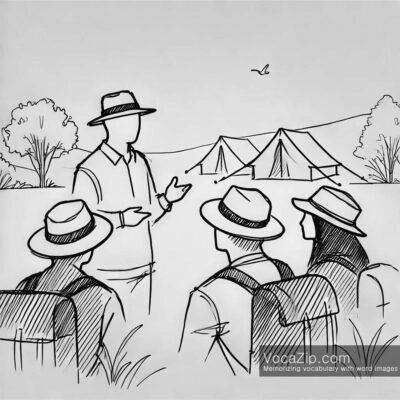conservation meaning
conservation :
preservation, protection
noun
▪ Conservation of forests is essential.
▪ Preservation of forests is essential.
▪ The conservation of water is vital for sustainability.
▪ The protection of water is vital for sustainability.
paraphrasing
▪ preservation – protection
▪ protection – safeguarding
▪ stewardship – management
▪ management – handling

Pronunciation
conservation [ˌkɒn.sərˈveɪ.ʃən]
The stress is on 'veɪ' and sounds like 'kon-sər-VAY-shun'.
Common phrases and grammar about conservation
conservation - Common meaning
noun
preservation, protection
Part of Speech Changes for "conservation"
▪ conserve (verb) – to protect natural resources
▪ conservative (adjective) – protective, cautious
▪ conservationist (noun) – a person who protects the environment
Common Expressions with "conservation"
▪ conservation efforts – activities to protect the environment
▪ conservation area – a protected natural area
▪ conservation laws – rules to protect resources
▪ conservation measures – steps taken to preserve
Important examples of conservation in TOEIC
Vocabulary examples from the TOEIC test
In TOEIC vocabulary questions, conservation is usually used to refer to protecting natural resources or the environment.
Example of a confusing word: conversation (a dialogue)
Grammar examples from the TOEIC test
In TOEIC grammar questions, conservation is used as a noun and may be the subject or object in sentences.
conservation
Idioms and fixed expressions in TOEIC
resource conservation
means 'saving resources', used when discussing efficient use.
practice conservation
means 'to regularly protect or save', common in business practices.
Differences between similar words and conservation
conservation
,
preservation
differences
Conservation refers to protecting and maintaining natural resources, while preservation focuses on maintaining something in its original state.
conservation
,
protection – conservation
differences
Conservation involves sustainable use of resources, protection may mean preventing harm without usage.
Words with the same origin as conservation
The origin of conservation
conservation comes from the Latin 'conservare', which means 'to keep, preserve'.
Word structure
It has the prefix con- (together), root serv- (keep), and suffix -ation (noun), so conservation means 'the act of keeping together'.
Words with the same origin
The root of conservation is serv (keep). Words with the same root include serve, service, reserve, and preserve.
Please select an image in the quiz
Previous post and next post


infectious
731
contagious, spreading
adjective ┃
Views 3






